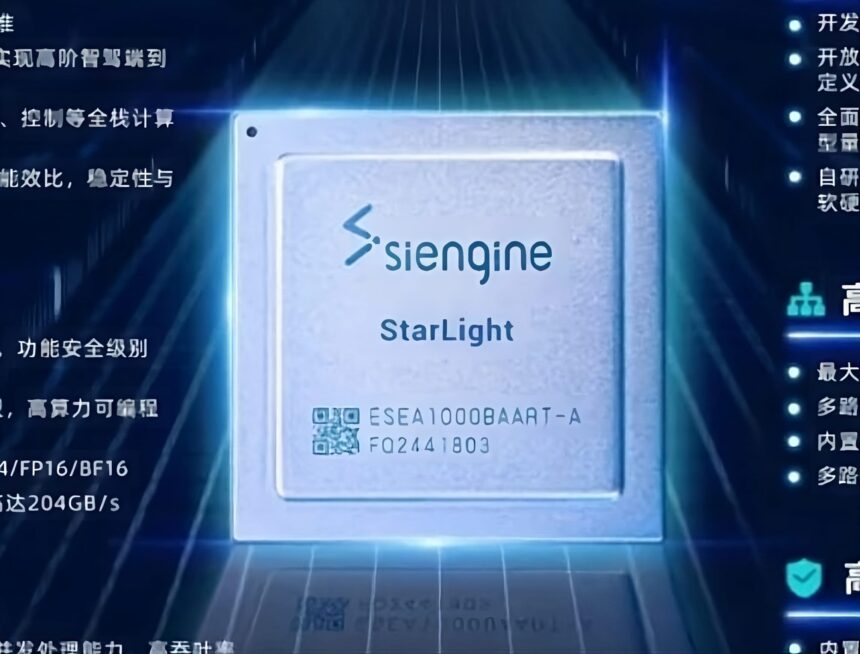On October 25, SiEngine announced the successful completion of its 7-nanometer autonomous driving chip, code-named StarLight (also referred to as Xingchen-1 in Chinese or codenamed AD1000). The chip is expected to be mass-produced by 2025 and subsequently deployable for automotive applications in 2026.

When the current flows through the chip effortlessly, it illuminates, indicating its usability and potential for large-scale manufacturing following rigorous testing and validation.

The SiEngine company successfully launched its new chip, which meets the rigorous standards of AEC-Q100 and features a heterogeneous multi-core architecture. The central processing unit (CPU) computing energy stands at a remarkable 250,000 DMIPS, whereas the neural processing unit’s computing capacity far exceeds expectations, boasting an impressive 512 trillion operations per second (TOPS).
Additionally, the NPU supports the Transformer-based community, a type of deep learning model commonly used in natural language processing and other machine learning applications. SiEngine further asserted that the StarLight has the capability to fulfill level 2 to level 4 autonomous driving technological requirements.

In 2021, SiEngine successfully introduced the Dragon Eagle-1, a pioneering automotive-grade system-on-chip (SoC) that marks China’s entry into the SoC cockpit chip market. This remarkable innovation measures approximately 83 mm² in size, boasting an astonishing 8.8 billion transistors, 87 layers of circuits, and a robust architecture featuring an 8-core CPU, 14-core GPU, programmable NPU, ISP, VPU, and DSP clusters. By December of the following year, SiEngine announced that its Dragon Eagle-1 had been successfully deployed on more than 200,000 vehicles. According to Gaogong Trade Institute data, the Dragon Eagle-1 emerged as the top-selling home cockpit chip in China throughout the first nine months of this year. Co. Ltd. (GGII). Founded in 2006, GGII is a leading consulting firm with expertise in emerging sectors such as electric vehicles, energy storage, robotics, and smart mobility.
About SiEngine
In 2018, SiEngine was jointly founded by ECARX and Arm China within the Wuhan Financial and Technological Growth Zone, focusing on the development, enhancement, and commercialization of cutting-edge automotive electronic semiconductors. ECARX, a leading provider of automotive expertise, was co-founded by Eric Li (Li Shufu), also the founder and chairman of Geely Holdings, in 2017.
As part of its strategic expansion, SiEngine is poised to unveil its next-generation intelligent cockpit chip, SiEngine 2.0, designed as the successor to the successful Dragon Eagle-1, with simultaneous availability alongside the innovative StarLight autonomous driving chip?
Supply: SiEngine, Eet-China, Cls











